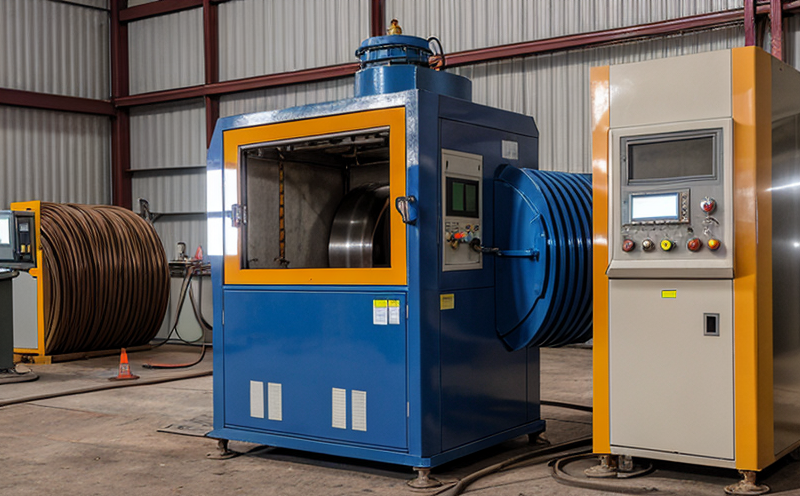Creep rupture testing for high-strength alloys
The Crucial Test for High-Strength Alloys Understanding Creep Rupture Testing
In the world of materials science and engineering, high-strength alloys are essential components in various industries such as aerospace, automotive, oil and gas, and nuclear power. These alloys are designed to withstand extreme conditions, including high temperatures, stresses, and corrosive environments. However, their durability and performance can be compromised by creep deformation, a gradual, time-dependent degradation of material properties that can lead to catastrophic failures.
To ensure the safety and efficiency of these critical components, Creep rupture testing is an indispensable laboratory service that provides manufacturers with invaluable insights into the long-term behavior of high-strength alloys. At Eurolab, our expert engineers and technicians offer comprehensive Creep rupture testing services tailored to meet the specific needs of industries relying on high-performance materials.
What is Creep Rupture Testing?
Creep rupture testing is a type of mechanical testing that evaluates the ability of high-strength alloys to resist creep deformation under constant stress at elevated temperatures. This test simulates real-world conditions, where materials are subjected to prolonged exposure to heat, resulting in a gradual reduction of their strength and stiffness.
The Creep rupture test involves loading a sample of the alloy to a specified stress level and then holding it at a constant temperature for an extended period, usually several hundred hours or even days. The test is designed to measure the time-to-failure (TTF), which indicates how long the material can withstand creep deformation before breaking.
Why is Creep Rupture Testing Essential?
Creep rupture testing provides manufacturers with critical information on the long-term performance and reliability of high-strength alloys, allowing them to
Predict failure modes By understanding the creep behavior of materials, manufacturers can anticipate potential failure points and implement preventive measures to avoid catastrophic events.
Optimize material selection Creep rupture testing helps identify the most suitable high-strength alloy for a specific application, ensuring that the chosen material meets the required performance standards.
Develop informed design strategies Manufacturers can use creep data to develop robust designs that account for the gradual degradation of material properties over time, reducing the risk of component failure.
Enhance product safety and reliability By understanding the long-term behavior of high-strength alloys, manufacturers can ensure that their products meet or exceed regulatory standards, protecting customers and the environment from potential harm.
Improve maintenance schedules Creep rupture testing enables manufacturers to schedule regular inspections and maintenance, reducing downtime and increasing overall efficiency.
Key Benefits of Creep Rupture Testing for High-Strength Alloys
Our comprehensive Creep rupture testing services offer numerous benefits, including
Accurate material characterization Our expert engineers and technicians provide detailed reports on the creep behavior of high-strength alloys, enabling manufacturers to make informed decisions about material selection and application.
Rapid turnaround times We understand the importance of timely results, and our state-of-the-art equipment ensures that samples are processed quickly and efficiently, minimizing delays in product development and deployment.
Compliance with industry standards Our Creep rupture testing services meet or exceed regulatory requirements for high-strength alloys, ensuring that products comply with relevant standards and regulations.
Cost-effective solutions By providing accurate predictions of material performance, manufacturers can reduce the risk of costly failures, saving time, money, and resources.
Frequently Asked Questions (FAQs)
What types of high-strength alloys can be tested using Creep rupture testing?
Our services are applicable to a wide range of high-strength alloys, including but not limited to, titanium alloys, steel alloys, nickel-based superalloys, and aluminum alloys.
What temperature ranges can be accommodated during the test?
We have the capability to perform Creep rupture testing at temperatures ranging from ambient (20C) up to 1000C or higher, depending on the specific requirements of the material being tested.
How long does a typical Creep rupture test take?
The duration of a Creep rupture test depends on the material and the desired stress level. Typically, tests can last anywhere from several hundred hours to several days or even weeks.
Can I request custom testing protocols for my specific application?
Yes, our expert engineers work closely with clients to develop customized testing protocols that meet their unique requirements and needs.
Do you provide certification and documentation of test results?
Yes, we provide comprehensive reports, including detailed data analysis, graphs, and charts, as well as any necessary certifications and documentation required by regulatory agencies or industry standards.
Conclusion
Creep rupture testing is a critical laboratory service that provides manufacturers with the confidence to develop high-performance products using high-strength alloys. At Eurolab, our team of experts is dedicated to delivering comprehensive Creep rupture testing services that meet the evolving needs of industries worldwide. By leveraging our expertise and state-of-the-art equipment, manufacturers can ensure the reliability and safety of their products, protecting people, assets, and the environment from potential harm.
Dont compromise on material performance. Choose Eurolab for your Creep rupture testing needs and take the first step towards developing high-performance materials that meet or exceed industry standards.




